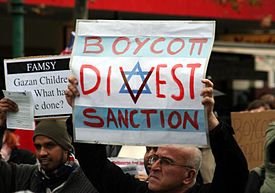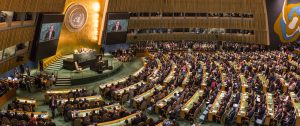Originally published in BESA on October 15, 2020
by Dr. Manfred Gerstenfeld
Summary: Israel has largely ignored the war of words against it. This includes malicious terms such as “apartheid” and “occupation,” as well as anti-Israel phrases like “land for peace” and “two-state solution.” The UN’s falsely calling descendants of Palestinians who fled during the 1948 war “refugees” is another example. Well before any new negotiations take place with the Palestinians, the issue of Palestinian incitement as part of their cult of the glorification of genocide and death should be put on the international agenda.
Successive Israeli governments have never had comprehensive policies to systematically fight all fronts of attack against the country. Prime ministers and their ministerial colleagues never seemed to understand what any beginning strategist would comprehend: that the fight against the Israeli state involves many weapons and tools, and Israel must combat them all.
No one can ignore open warfare and terrorism. The Israeli government thus gave those aspects of the battlefield much attention. The bodies created for this purpose at the IDF and the intelligence agencies perform rather well. A few years ago, the Israeli government grasped that cyberwarfare was dangerous as well, and accordingly set up an agency to deal with it.
In other areas of the battlefield, Israel has performed less effectively and often negligently. In confronting boycotts, Israel’s performance was unremarkable. The original Arab boycott existed for decades. Israel tried to circumvent it in many ways—some successful, many others less so.
At the beginning of the 21st century, another form of boycott emerged that is now known as BDS (Boycott, Divestment, Sanctions). BDS started in the university world with an open letter in the Guardian on April 6, 2002, signed by more than 100 academics. It called for a moratorium on all cultural and research links with Israel at European or national levels until the Israeli government abided by UN resolutions and opened “serious peace negotiations with the Palestinians, along the lines proposed in many peace plans including most recently that sponsored by the Saudis and the Arab League.” The open letter was followed by other somewhat similar initiatives. Friends of Israel came out against it. The Israeli government took very little action for many years.







